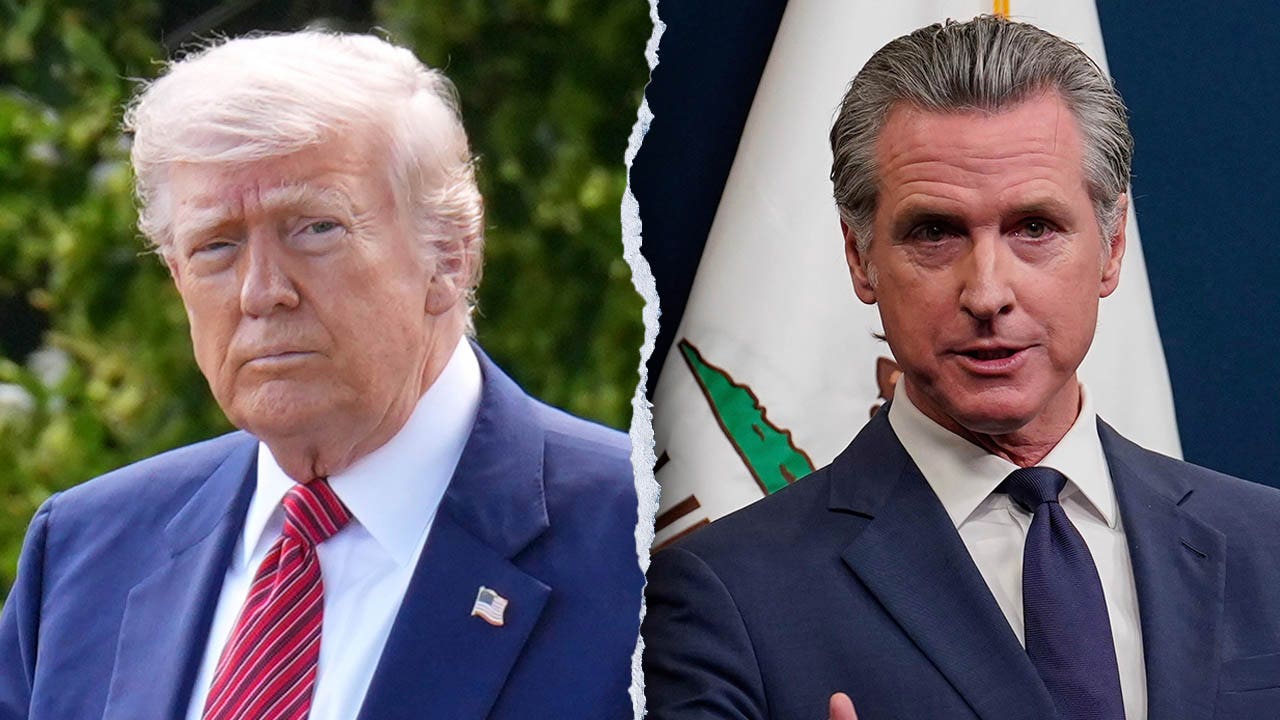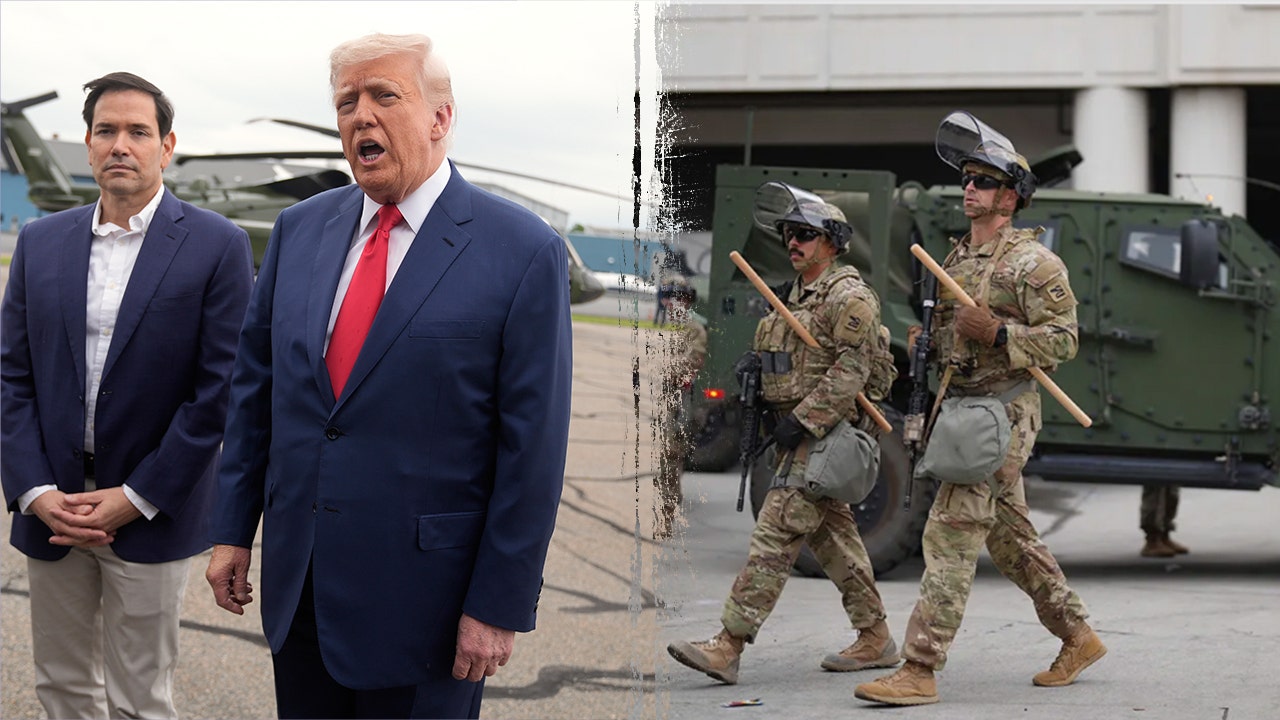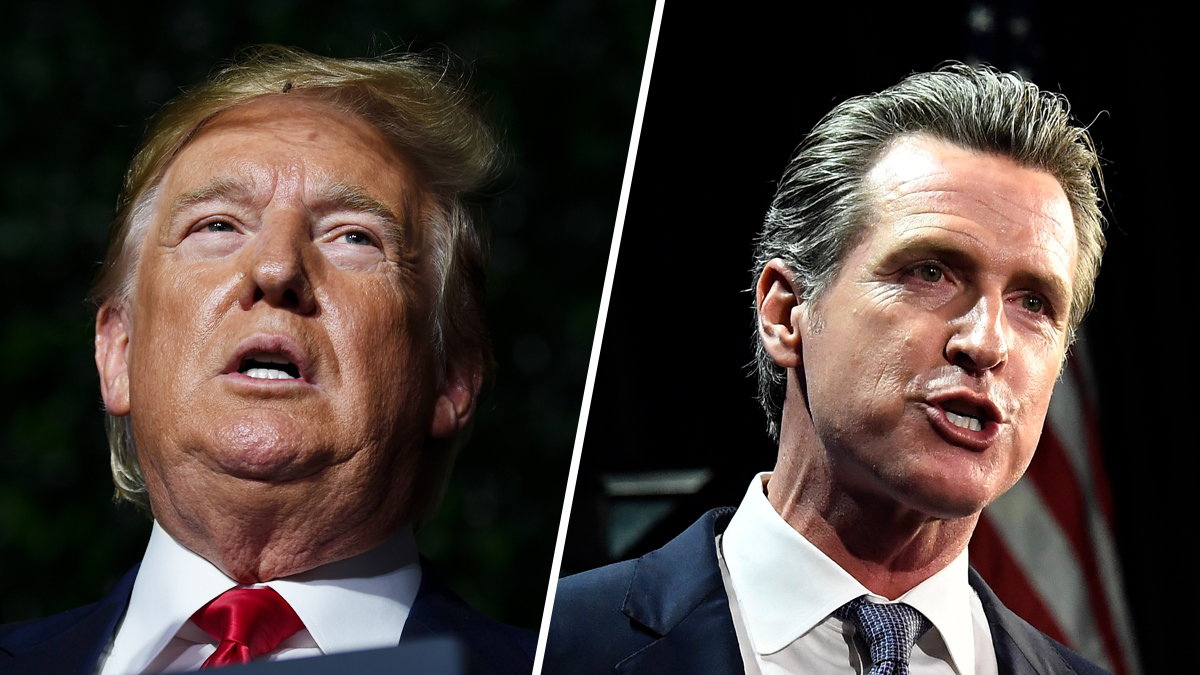
In a highly significant ruling that has implications for the balance of state and federal power, the U.S. Court of Appeals for the Ninth Circuit recently denied California’s request for an en banc rehearing in the case of Newsom v. Trump, effectively upholding a previous decision that granted President Donald Trump the authority to retain control over California National Guard troops.
The court’s short order, confirming that a majority of eligible judges did not support a full-court review, concluded California’s challenge under docket No. 25-3727 was without merit and solidified Trump’s federalization of the Guard troops as consistent with federal law.
The decision has sparked intense debate and raised crucial constitutional questions regarding the scope of executive power, particularly the ability of the President to deploy federal forces in response to domestic unrest.
For California, the ruling marks a significant setback in its effort to maintain control over its own National Guard units, and for President Trump, it reinforces his broader vision of federal authority in domestic law enforcement matters.
The controversy centers on a series of events that began on June 6, 2025, when U.S. Immigration and Customs Enforcement (ICE) agents carried out a series of raids near the Metropolitan Detention Center in Los Angeles.
The raids, part of an ongoing crackdown on illegal immigration, led to the arrest of 44 individuals, with an additional 70 to 80 individuals detained. As news of the operation spread, protests erupted in several parts of the city, escalating into violent confrontations with federal officers.
Demonstrators threw objects at federal agents and caused minor damage to federal property, intensifying tensions between local authorities and federal law enforcement.
In the face of these disturbances, President Trump invoked 10 U.S.C. § 12406, a federal statute that grants the President the authority to federalize National Guard units during times of national emergency or unrest.

On June 7, 2025, Trump ordered the deployment of 4,000 California National Guard troops for a period of 60 days to assist federal personnel and protect federal property in Los Angeles.
The President’s decision, made in response to the perceived threat to federal agents, was framed as a necessary measure to restore order and ensure the safety of federal personnel.
However, Governor Gavin Newsom, a staunch Democrat and critic of the Trump administration, immediately challenged the President’s decision. Newsom argued that Trump’s federalization order violated established statutory protocols and infringed on California’s rights as a sovereign state.
In a lawsuit filed on June 9, 2025, Newsom contended that the President had overstepped his constitutional authority by bypassing the state’s governor and directly ordering the National Guard into federal service.
Newsom’s legal team argued that, under the Tenth Amendment, the deployment of troops within a state should be subject to the approval of the state’s governor.
Initially, U.S. District Judge Charles R. Breyer ruled in favor of the state, issuing a temporary restraining order on June 10, 2025, which blocked the deployment and returned command of the Guard to Newsom.
This decision, while temporary, set the stage for a broader legal battle over the scope of presidential power in domestic matters. The Justice Department swiftly appealed the decision, securing an administrative stay, and the Ninth Circuit Court was soon tasked with reviewing the case.
On June 19, 2025, a three-judge panel of the Ninth Circuit—composed of Judges Mark J. Bennett, Eric D. Miller, and Jennifer Sung—ruled in favor of President Trump, staying the district court’s order entirely.

The panel applied a "highly deferential" standard of review and concluded that Trump’s federalization of the Guard troops was likely consistent with federal law under 10 U.S.C. § 12406(3).
The court found that the deployment was warranted given the immediate threat to federal personnel and property and that local law enforcement had been unable to effectively manage the escalating unrest.
The panel also addressed the procedural aspects of the federalization order, noting that while the order had been delivered through California’s Adjutant General, who serves as the state’s military liaison to the federal government, it still met the statutory requirement for routing the order through the governor.
This finding effectively dismissed Newsom’s argument that Trump had violated the established protocols for deploying National Guard troops, and the court ruled that the order was likely lawful.
The panel’s decision was a major victory for President Trump, reinforcing the broader executive power that he had exercised during his time in office. The ruling effectively blocked Newsom’s attempt to regain control over the National Guard and signaled the court’s confidence in the President’s authority to act unilaterally in matters of national security.
The Ninth Circuit’s decision also sent a broader message about the deference that courts should give to presidential decisions regarding the deployment of federal forces, particularly when those decisions are tied to matters of public safety.
However, the decision was not without its critics. Senior Circuit Judge Marsha S. Berzon, joined by Chief Judge Mary Murguia and nine other judges, issued a dissenting statement, arguing that the panel’s ruling set a dangerous precedent for unchecked executive power.
Berzon raised concerns about the erosion of federalism and the potential for future executive overreach, particularly with regard to the peacetime deployment of military forces in American cities.

"This case presents an issue of the gravest consequence: the peacetime deployment of military troops in American cities," Berzon wrote, warning that such actions could undermine the balance of powers and violate the principles of state sovereignty.
Circuit Judge Ronald M. Gould also dissented, urging the court to reconsider the case in a full-court review. Gould argued that the implications of the ruling were too significant to be decided by a small panel of judges and expressed concern that the decision could pave the way for future presidents to deploy troops in states without the consent of state governments.
The dissenting judges emphasized the importance of maintaining a system of checks and balances and safeguarding the rights of states to control their own National Guard units.
Despite these concerns, the Ninth Circuit’s ruling stands, at least for the time being. The panel’s decision effectively affirms the federal government’s ability to federalize National Guard units during domestic disturbances without state consent, marking a significant expansion of presidential authority.
Legal analysts have noted that the ruling could have broad implications for future cases involving the deployment of federal forces, particularly in situations where local law enforcement is unable or unwilling to handle escalating unrest.
Governor Newsom’s office has not yet announced whether it will seek a review of the Ninth Circuit’s decision by the U.S. Supreme Court. A petition for certiorari remains possible within the standard 90-day window, and Newsom’s legal team may choose to challenge the ruling on constitutional grounds.
However, given the composition of the Ninth Circuit panel—two Trump appointees and one Biden appointee—it remains uncertain whether the Supreme Court would be willing to take up the case.
The legal battle surrounding the federalization of the California National Guard is not isolated. Similar cases are unfolding in other states, including Oregon and Illinois, where governors have raised concerns about presidential overreach and the deployment of National Guard units without their approval.

These cases could potentially lead to a circuit split, which might ultimately prompt the Supreme Court to weigh in on the broader question of executive authority in domestic law enforcement matters.
In the meantime, the political ramifications of the Ninth Circuit’s decision continue to reverberate across the country. The ruling underscores the tension between federal and state power, particularly when it comes to the deployment of military forces in domestic settings.
It also highlights the ongoing battle between the Trump administration’s vision of strong federal control and the more traditionally states’ rights-oriented stance of many Democrats.
As the legal landscape surrounding National Guard deployments evolves, it is clear that the debate over federalism and executive power will only intensify.
The outcome of this case may set a precedent for future administrations and reshape the way in which the federal government interacts with state-level authority.
Whether this decision will be upheld or overturned in the future remains to be seen, but for now, President Trump has scored a significant victory in the ongoing battle for control over the National Guard.
-1749884951-q80.webp)


